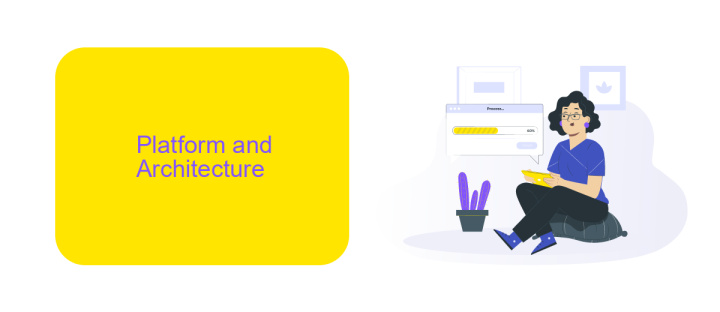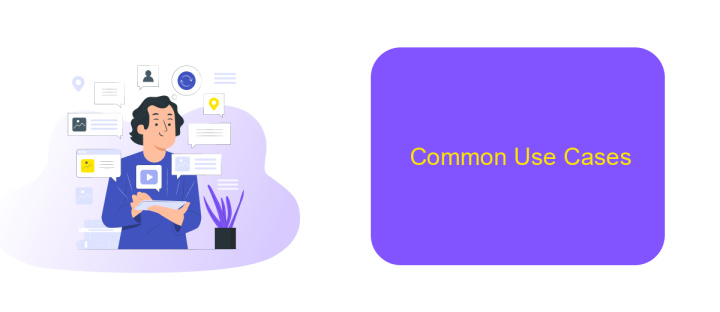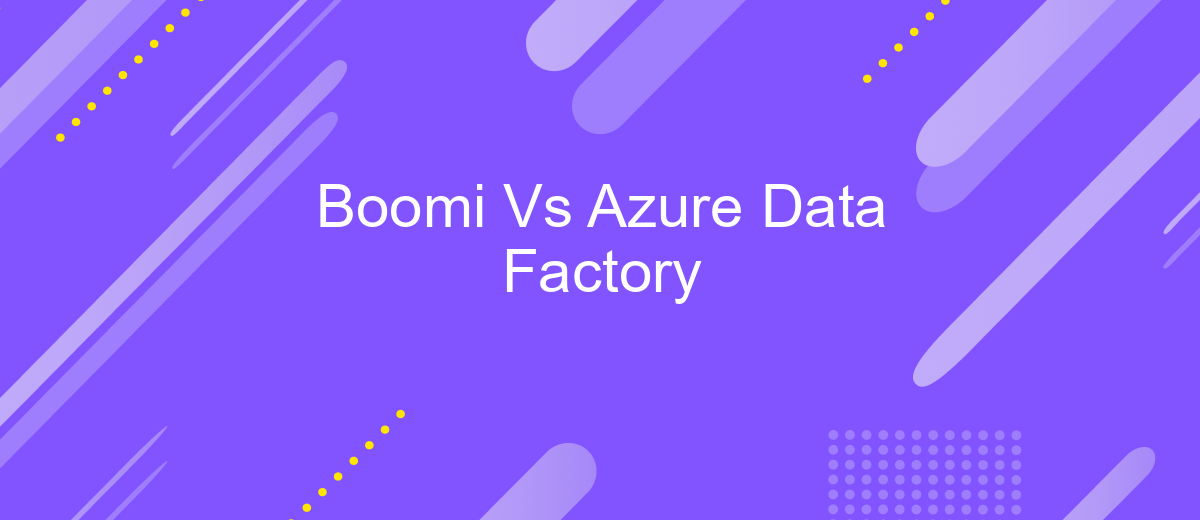Boomi Vs Azure Data Factory
Choosing the right data integration and management platform can significantly impact your business operations. Boomi and Azure Data Factory are two leading solutions in this space, each offering unique features and capabilities. This article will compare Boomi and Azure Data Factory, examining their strengths, weaknesses, and use cases to help you make an informed decision for your organization.
Introduction
In today's data-driven world, businesses rely heavily on robust integration platforms to streamline their data workflows and ensure seamless connectivity between various systems. Two prominent players in this space are Boomi and Azure Data Factory. These platforms offer powerful tools and features to help organizations manage their data integration needs efficiently.
- Boomi: Known for its user-friendly interface and extensive pre-built connectors, Boomi facilitates quick and easy integration across a wide range of applications and data sources.
- Azure Data Factory: A cloud-based data integration service by Microsoft, Azure Data Factory excels in orchestrating complex data workflows and transforming data at scale.
Choosing the right integration platform can significantly impact your organization's ability to harness data effectively. In this article, we will compare Boomi and Azure Data Factory, examining their key features, benefits, and use cases to help you make an informed decision. Additionally, we'll explore how services like ApiX-Drive can complement these platforms by offering automated integration solutions to further enhance your data management strategy.
Platform and Architecture

Boomi and Azure Data Factory offer robust platforms and architectures tailored for different data integration needs. Boomi's platform is renowned for its low-code environment, enabling users to design integrations with minimal coding. It supports a wide range of connectors and pre-built templates, which simplifies the integration process. Boomi's architecture is cloud-native, ensuring scalability and flexibility, making it an excellent choice for organizations looking to streamline their integration processes quickly and efficiently.
On the other hand, Azure Data Factory is a comprehensive data integration service within the Azure ecosystem. It provides a rich set of features for data orchestration and transformation, leveraging Azure's extensive cloud infrastructure. The platform supports complex data workflows and big data processing, making it ideal for enterprises with substantial data integration requirements. Additionally, services like ApiX-Drive can complement these platforms by offering additional integration capabilities, enhancing the overall efficiency and effectiveness of data workflows.
Features and Capabilities

Boomi and Azure Data Factory are two prominent platforms for data integration and transformation, each offering a unique set of features and capabilities. Boomi excels in providing a user-friendly interface with extensive pre-built connectors, making it easier to integrate various applications and data sources. Azure Data Factory, on the other hand, offers robust data orchestration and transformation capabilities, leveraging the power of Azure's cloud services.
- Boomi:
- Extensive library of pre-built connectors
- User-friendly, drag-and-drop interface
- Real-time data integration
- Comprehensive monitoring and alerting
- Azure Data Factory:
- Scalable data orchestration
- Support for both on-premises and cloud data sources
- Advanced data transformation capabilities
- Integration with other Azure services
In addition to these platforms, services like ApiX-Drive can further simplify the integration process by providing automated workflows and seamless connectivity between various applications and data sources. This makes it easier for businesses to streamline their operations and enhance data-driven decision-making.
Common Use Cases

Boomi and Azure Data Factory are popular tools for integrating and transforming data across various systems. They serve different purposes but often overlap in their use cases. Both platforms are designed to streamline data workflows and ensure seamless data management.
Common use cases for Boomi include application integration, where it connects disparate systems to enable smooth data flow. It is also widely used for data migration projects, ensuring that data is accurately transferred from legacy systems to modern platforms. Boomi excels in real-time data synchronization, making it ideal for applications where up-to-the-minute data accuracy is crucial.
- Application Integration
- Data Migration
- Real-time Data Synchronization
- API Management
Azure Data Factory, on the other hand, is often employed for big data processing and analytics. It is particularly effective in orchestrating complex ETL (Extract, Transform, Load) workflows. Businesses use Azure Data Factory to manage large-scale data transformations and to facilitate data warehousing solutions. Both tools can be complemented by services like ApiX-Drive, which further simplify the integration and automation of data workflows.
Pricing and Licensing
Boomi offers a flexible pricing model based on the number of integrations, connections, and the volume of data processed. This subscription-based model allows businesses to scale their usage and only pay for what they need. Boomi also provides various licensing options, including Standard, Professional, and Enterprise editions, catering to different business sizes and requirements. Additionally, Boomi often includes support and maintenance in their pricing packages, ensuring that clients have access to the latest features and updates.
Azure Data Factory, on the other hand, utilizes a pay-as-you-go pricing model, allowing users to pay based on the number of data pipeline activities and the volume of data moved. This model can be cost-effective for businesses with fluctuating data processing needs. Azure Data Factory also offers a free tier with limited capabilities, which can be beneficial for small businesses or testing purposes. Both Boomi and Azure Data Factory provide robust integration capabilities, and for those seeking additional ease of use, services like ApiX-Drive can facilitate seamless integration setup and management.
- Automate the work of an online store or landing
- Empower through integration
- Don't spend money on programmers and integrators
- Save time by automating routine tasks
FAQ
What are the primary use cases for Boomi and Azure Data Factory?
How do Boomi and Azure Data Factory handle data transformation?
Which platform is better for real-time data integration?
Can Boomi and Azure Data Factory be used together?
What are the alternatives for small businesses looking for integration and automation solutions?
Apix-Drive is a universal tool that will quickly streamline any workflow, freeing you from routine and possible financial losses. Try ApiX-Drive in action and see how useful it is for you personally. In the meantime, when you are setting up connections between systems, think about where you are investing your free time, because now you will have much more of it.


